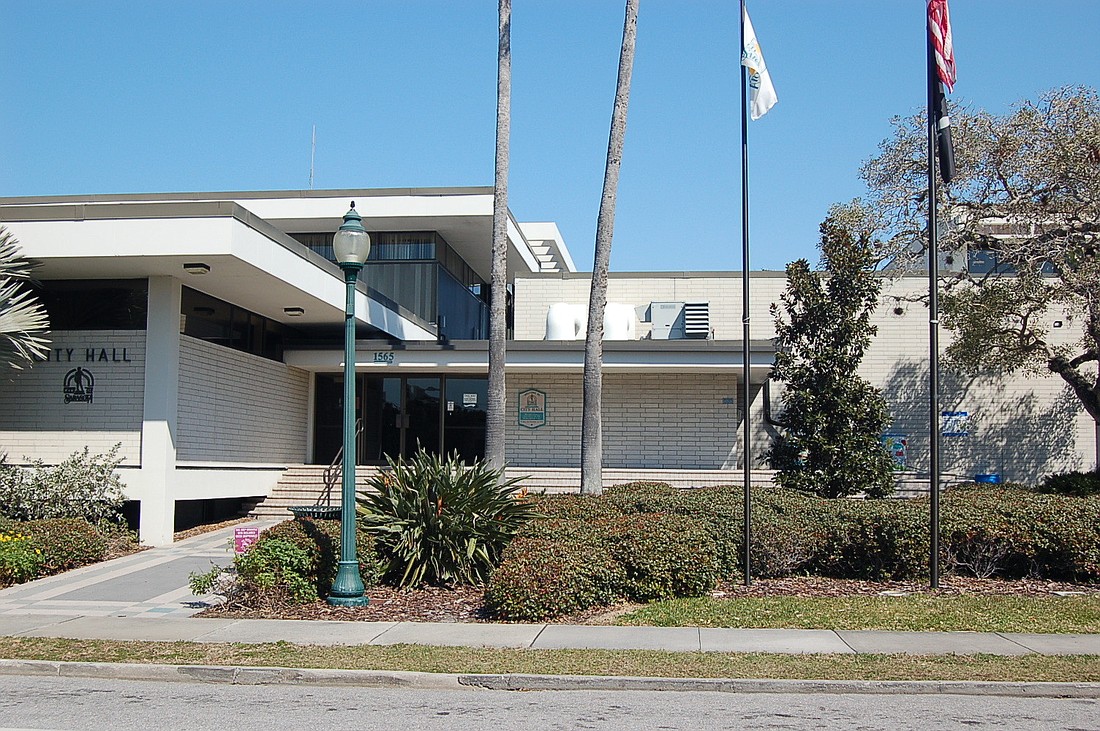- July 26, 2024
-
-
Loading

Loading

A group of advocates is preparing a campaign to put a new Sarasota city charter up for consideration during this November’s election, which, if approved, would establish an elected mayor as the chief executive of the municipal government.
It’s Time Sarasota is a political committee chaired by Linda Holland, the president of the Gillespie Park Neighborhood Association. The group is advocating for a new city charter that would create an elected mayor position, sometimes referred to as a “strong mayor,” to oversee the city. Another significant change would establish a city council with five individual districts, rather than the three districts that currently send representatives to the City Commission.
The group is working on finalizing the language of the proposed charter, which would be a departure from the city's current commission-manager form of government. Once that work is completed, they will focus on gathering the roughly 3,500 signatures required to place a charter referendum on the November ballot.
The proposal is, at least partially, not a new idea: The city’s voters have rejected three elected mayor referendum items dating back to 1996. Opponents of the proposal have used these elections — the last of which saw the referendum defeated by a roughly two-to-one margin in 2009 — as evidence Sarasota citizens aren’t interested in that form of government.
Supporters of the new charter say there are several mitigating circumstances that make this effort different. Holland pointed out that fewer than 7,000 voters cast a ballot on the 2009 referendum, held in March, whereas nearly 20,000 votes were cast on proposed amendments in the November 2012 general election. She believes a general election referendum would better reflect the true beliefs of Sarasota residents.
“How many times have we had city elections with such a pathetic percentage of turnout?” Holland said. “We need all of the city voters to come out and have their say, not just a small amount.”
Messaging, too, will be emphasized differently for this referendum. Holland said the previous efforts have been characterized as an elite few trying to force their will on the majority, and believes that isn’t reflective of the true nature of the campaign. She said it was important to show people that a wide base of people is supportive of these efforts, and that even the initial planning meetings of roughly twenty people have contained a diversity of perspectives.
"We have to get not just one or two spokespersons," Holland said. "We have to get a lot of people out there saying 'Yes, it's time.'"
This proposed charter dates back to the 2012 efforts of Commissioner Paul Caragiulo, who suggested the City Commission put a similar referendum on the ballot. After that proved unsuccessful, Caragiulo said he worked with Robert Martineau, professor emeritus at the University of Cincinnati College of Law, who began composing an entirely new charter in plainer language early last year.
Caragiulo said his contribution to the new push for a revamped charter more or less ended there, with citizens in the planning group taking the lead in revising the original draft. Still, Caragiulo said there were misconceptions surrounding the proposal that he hoped would be cleared up as time went on.
He argued that the proposed charter, with five districts electing city council members, would create a more representative form of government than the current system. He said Sarasota was a diverse city with a diverse set of interests, and that capturing all of those voices would become increasingly difficult with the status quo.
“When the districts were drawn, the demographics and the population was quite different than it is now,” Caragiulo said. “Redevelopment and other factors have diluted the African-American population to the point where it’s only 36% of District One.”
Caragiulo said he would support the referendum, but that his main priority is allowing a larger proportion of the electorate to voice their opinion on the matter. After that, he said, it should be much clearer how the community feels about the proposed charter.
Even if it fails to gain approval in November, he said those fatigued by elected-mayor initiatives should prepare themselves for the possibility of those efforts continuing if support still exists.
"If this goes forward and gets on the ballot, and you have 60 or 65% voter turnout, and you see a very sound result defeating it, that's going to send quite a message,” Caragiulo said. “If it minimally fails? You might adjust the structure and come back again. This is part of government. This is part of the deal."
Contact David Conway at [email protected].